- Home
- Alex Irvine
Phase Three: MARVEL's Doctor Strange Page 2
Phase Three: MARVEL's Doctor Strange Read online
Page 2
“How about a twenty-two-year-old female with an electronic implant in her brain to control schizophrenia struck by lightning?”
“That does sound interesting. Could you send me the…” His phone pinged and images appeared. “Got it.” He glanced from the road down to the image, then back to the road. He swung into the other lane to pass the car in front of him. Then he looked back down to the image.
Then he made a mistake.
His car scraped the other car’s fender and careened away. Strange hauled at the wheel, but it was too late. He spun off the road and crashed into a tree. Then he kept going down a steep bluff, smashing through other trees and plowing into the ground on the bank of the Hudson River. The last thing he saw before he passed out was blood on his hands.
Then… nothing.
CHAPTER 2
When Strange woke up, he was in a hospital bed. Christine was by his side. “Hey,” she said softly. “It’s okay. It’s going to be okay.” He had no idea what day it was, or how long he had been out.
His eyes started to focus. The left was swollen mostly shut. He looked at her, then down the bed. For a long moment all he could do was stare. Both of his hands were in traction, with a frame of pins and brackets screwed into them. Fixators, they were called. Doctors only used them in cases of catastrophic damage. Strange tried to move his fingers and couldn’t. All he could do was twitch his thumbs a little. “What did they do?” he croaked slowly and painfully. Already he was thinking like a surgeon, thinking about what he would have done.
“They rushed you in a chopper. But it took a little while to find you. Golden hours for nerve damage went by while you were in the car.”
“What did they do?” he asked again. He didn’t care about the golden hours or the helicopter. He cared about his hands. Without them… he wasn’t sure what he was. He was nothing.
“Stainless steel pins in the bones,” she said. “There were multiple torn ligaments. Severe nerve damage in both hands. You were on the table for eleven hours.”
“Look at these fixators,” Strange moaned.
“No one could have done better,” Christine said.
He knew she meant it, but he turned his head to look at her and said, “I could have done better.”
It was an agonizing two weeks before they removed the fixators and let him try moving his hands on his own. He held them up, crooked and scarred and shaking. “No,” he said. He couldn’t believe this was happening. “No.”
“Give your body time to heal,” Doctor Patel said.
He looked at her and thought, No, this won’t heal. “You ruined me,” he said.
He found himself in the uncomfortable position of being a patient. He had consulted with every doctor working in experimental neurosurgery, and of course had his own ideas, too. If he could increase blood flow to the hands, maybe…
“Doctor Strange,” the consulting physician objected, “those tissues are still healing.”
“So speed it up. Pass the stent down the brachial artery under the radial artery.” He’d read about this. Even if he couldn’t perform surgery, he could keep up on the medical journals.
“It’s possible,” another of the consulting team said. “Experimental and expensive, but possible.”
That was fine with Strange. “All I need is possible,” he said.
After the second operation came grueling hours of physical therapy. He had to recover strength in his hands before he had any hope of being steady enough to perform surgery again. The therapist put rubber bands around his fingertips and had him flex his fingers straight. “Up, up,” he encouraged. “Show me your strength.”
“Ahhh!” It hurt too much. “It’s useless.”
“It’s not useless, man, you can do this.” The therapist was always an optimist, and Strange was sure that was helpful to some patients. Today it made Strange furious.
“Then answer me this, Bachelor’s Degree,” he snapped. His hands wouldn’t stop shaking. “Have you ever known anyone with nerve damage this severe to do this, and actually recover?”
“One guy, yeah,” the therapist said without missing a beat. “Factory accident, broke his back. Paralyzed. His legs wasted away. He had pain in his shoulder from the wheelchair. He came in three times a week. But one day he stopped coming. I thought he was dead. A few years later, he walked past me on the street.”
“Walked?”
“Yeah, he walked.”
Strange knew better. That was impossible. “Show me his file.”
“It can take me a while to pull the files from the archive,” the therapist said. Then his good nature slipped a little. Strange had pushed him too far. “But if it proves you wrong, it’s worth it.”
Strange threw himself into the work of getting his hands back. He read everything there was to read, no matter how experimental or how dangerous. He worked constantly at getting his coordination back. But at the end of a month, he still couldn’t shave his own face. He could barely write his name. His last hope was a European doctor named Doctor Etienne, who specialized in cutting-edge reconstruction. But Etienne wasn’t the answer. “I looked at all your research,” he said on a video call. “I read all the papers you’ve sent, but… none will work. I… I don’t think you realize how severe the damage is. At best, I’d try and fail.”
“Look, I understand. Here’s the thing—” Strange began. He didn’t care if it failed. He wouldn’t be any worse off than he already was.
“What you want from me is impossible, Stephen. I’ve got my own reputation to consider,” the doctor on the other end of the call interrupted.
“Etienne, wait,” Strange said. But he knew what it was like to refuse a case because he didn’t want to endanger his own reputation. Now he was on the other end.
“I can’t help you,” Etienne said, and hung up.
For a moment, Strange sat quietly. Then, in a rage, he flung everything off his desk.
There had to be something, someone… someone had to know how to repair his hands. Without them he wasn’t Stephen Strange.
Christine walked into Strange’s loft with a care package, only to find him sitting there dejectedly. “He won’t do it,” she guessed.
“He’s a hack,” Strange said, already on to the next idea. “There’s a new procedure in Tokyo. They culture donor stem cells and then harvest them and 3-D-print a scaffold. If I could get a loan together, just a small loan, two hundred thousand—”
She cut him off. “Stephen. You’ve always spent money as fast as you could make it, but now you’re spending money you don’t even have. Maybe… it’s time to consider stopping.”
“No.” That was unthinkable. “Now is exactly the time not to stop. Because, you see, I’m not getting any better!”
“But this isn’t medicine anymore. This is mania. Some things just can’t be fixed.”
Strange knew this was true for other people. Not for him. If he wasn’t a surgeon—a great surgeon, the greatest—what was he? “Life without my work…”
“Is still life,” she said. “This isn’t the end. There are other things that can give your life meaning.”
He was not in the mood for her to get sentimental. “Like what? Like you?” he snapped.
That hurt her. She took a moment to compose herself and said, “This is the part where you apologize.”
Not a chance, he thought. “This is the part where you leave.”
“Fine,” she said. “I can’t watch you do this to yourself anymore.”
“Too difficult for you, is it?” She didn’t have the strength he had. He was going to see this through and find a solution, no matter what.
“Yes,” Christine said. “It is. And it breaks my heart to see you this way.”
“No. Don’t pity me.” That was the last thing he wanted or needed.
“I’m not pitying you,” she said. But he didn’t believe it.
“Oh yeah?” he shot back. “Then what are you doing here? Bringing cheese and wine as if we’r
e old friends going for a picnic? We are not friends, Christine. You just love a sob story, don’t you? Is that what I am to you now? Poor Stephen Strange, charity case. He finally needs me. Another dreg of humanity for you to work on. Fix him up and send him back into the world, heart is just humming…” He knew he was out of line but he didn’t care. He wasn’t going to be just a patient to her, or just someone who needed help. He was Stephen Strange. He didn’t need anyone’s help. “You care so much!” he shouted, bitter and sarcastic. “Don’t you?”
Christine had let him rant, and now that he had run out of steam, she might have gone on a rant of her own. But all she said was, “Good-bye, Stephen.” She dropped her keys on the table as she walked out.
CHAPTER 3
Later that night Strange opened a package the overly optimistic physical therapist had sent him. He didn’t believe there would be anything useful in it. The guy was probably just telling him stories to motivate him. When he pulled the folder out of the envelope, the first thing he saw was a sticky note: Told you so!
He started reading the file. Then he read it again. Then he realized that if he were the kind of person who apologized, he would owe the therapist an apology. Instead, he went looking for the patient from the file. It wasn’t easy to find him—Strange wasn’t a detective by any means, and one person in a city of millions could be hard to find.
Finally, Stephen found the patient playing basketball at a public court near the river. He was running, jumping, even talking trash to the other players. “Come on, man! Where is the competition?” He laughed.
Stephen called out to him from the other side of the fence surrounding the court. “Jonathan Pangborn,” he said. The tall man with dark hair and a short but unkempt beard turned to look at him, puzzled to hear a stranger calling his name. “C7–C8 spinal cord injury, complete,” Strange added.
“Who are you?” Pangborn asked.
Strange kept talking, mostly because he couldn’t believe this was the same person he’d read about. “Paralyzed from the mid-chest down. Partial paralysis of both hands.”
“I don’t know you,” Pangborn said.
“I’m Stephen Strange. I’m a neurosurgeon. Was a neurosurgeon,” he corrected himself.
“Actually, you know what, man?” Pangborn came close to the fence. “I think I know you. I came to your office once. You refused to see me. I never got past your assistant.”
“You were untreatable.”
Pangborn smirked. “No glory for you in that, right?”
“You came back from a place there is no way back from! I… I’m trying to find my own way back.” He held up his hands so Pangborn could see them and understand.
Pangborn paused, considering. “Hey, Pangborn, you in or out?” one of the other players called. He waved for the next game to go on and walked around the fence to meet Strange.
“All right,” he said. “I’d given up on my body. I thought my mind was the only thing I had left. I should at least try to elevate that. So I sat with gurus and sacred women. Strangers carried me to mountaintops to see holy men. And finally, I found my teacher.” He spoke with the quiet intensity of a man who has been through something remarkable—something he thinks no one will believe, and doesn’t care if they do. “And my mind was elevated. And my spirit deepened. And somehow…”
“Your body healed,” Strange finished. It was an incredible story, unbelievable. Nothing in medicine or science said it was possible. And yet there was Jonathan Pangborn, walking.
“Yes,” Pangborn said. “And there were deeper secrets to learn then, but I did not have the strength to receive them. I chose to settle for my miracle, and I came back home.” He looked away over the river, then quietly made a decision. “The place you’re looking for is called Kamar-Taj. But the cost is high.”
“How much?” Strange didn’t care. He would sell everything he had to make it happen.
“I’m not talking about money,” Pangborn said. He gave Strange a mocking smile. “Good luck.” Then he walked away to rejoin the game.
A week later, Strange was in Nepal. He’d found mentions of Kamar-Taj in different books on mysticism, the kind of thing he would never have read before. But he’d seen Jonathan Pangborn walk and run and jump, and if the books said Kamar-Taj was in Kathmandu, Strange decided he was going to Kathmandu. He would find Kamar-Taj no matter what.
So he walked the teeming streets of Kathmandu, disheveled and bearded, his hair matted to his head and wilder than ever before, occasionally stopping someone to ask about Kamar-Taj. Most of them just shook their heads. Sometimes he would get vague directions. He did this for days. Walking through one of the temple complexes, he was pointed down a small side street. Tired and footsore, Strange kept going. He would knock on every door in Kathmandu if that’s what it took.
The side street was deserted, and as soon as Strange was halfway down it, he noticed someone following him. Then a man stepped out of a doorway in front of him. “Okay,” he said. He knew what was happening.
He turned so he could see all the men. There were four of them. “Guys, I don’t have any money.”
“Your watch,” one of them said. At least they spoke English, Strange thought. Maybe he could talk his way out of this.
“No, please. It’s all I have left.”
The mugger didn’t care. “Your watch,” he repeated.
“All right.” Strange reached for his wrist like he was going to take his watch off. Then something snapped inside him. No. He wasn’t going to give them his watch. He wasn’t going to be robbed in an alley like some stupid tourist. As the mugger reached for the watch, Strange wound up and punched him in the face.
His attack didn’t do much, and the pain from his hand was incredible. For a moment it blocked out everything else. Then one of the other muggers knocked him down and all four started kicking and beating him. He tried to stand but he couldn’t. One of them kicked him in the head and he curled up, trying to avoid being badly hurt. He took their abuse for what seemed like an eternity, and they only stopped when he wasn’t moving anymore.
He felt one of them jerk the watch from his wrist.
Then, out of nowhere, another man appeared. He charged into the group of muggers, green-and-black hooded cloak flying out behind him as he took on all four of them. Like something out of a movie, he dodged all their attacks and beat them to the ground in the time it took Strange to regain his senses. When all four of the muggers were incapacitated, the stranger bent down and picked something up from the street. He walked to Strange, who was just getting to his feet. He was battered, but he didn’t think anything was broken.
The stranger held out his watch. The face was shattered. Strange took it and nodded to thank him. He pulled back his hood. He was a young man, with short hair and a long scar that stood out on his dark forehead. When he spoke, he had an accent Strange didn’t recognize. “You’re looking for Kamar-Taj?”
All Strange could do was nod. Had this guy been following him? Had he heard Strange asking someone else about Kamar-Taj?
The stranger nodded back and started walking. Strange followed, cradling his right arm. Now that he’d had a chance to settle down a little and let the adrenaline wear off, he was feeling the pain more acutely.
Winding through the streets of Kathmandu, the stranger passed a temple and led Strange into a cramped square. He nodded toward a simple wooden door set into a brick wall. “Really? Are you sure you got the right place?” Strange asked. Looking back at the temple, he added, “That one looks a little more… Kamar-Taj-y.”
Deadly serious, Strange’s rescuer looked him in the eye. “I once stood in your place. And I too was… disrespectful. So might I offer you some advice?” Strange stared at him, nodding. “Forget everything you think you know.”
“Uh… all right.” This is all a bunch of hocus-pocus, Strange thought. But what choice did he have? He needed answers.
Inside, incense burned and the sun filtered through screened walls. “The s
anctuary of our teacher,” his rescuer said. “The Ancient One.”
“The Ancient One?” Strange echoed. “What’s his real name?”
The other man just looked at him.
“Right,” Strange said. “Forget everything I think I know. I’m sorry.” He stepped farther into the room. An older Asian man sat reading. Strange nodded at him. “Thank you for… oh!” Two women appeared from nowhere and took off his coat. “Okay, that’s, uh… a thing,” he said. “Thank you. Hello.”
A white-robed woman with a shaved head brought him tea. “Thank you,” he said again to her. Then he looked back to the seated man. “Uh, thank you, Ancient One… for seeing me.”
“You’re very welcome,” answered the woman in the white robe.
Confused, Strange looked back at his rescuer. “The Ancient One,” he said.
“Thank you, Master Mordo,” she said to him. So that was his name. “Thank you, Master Hamir!” she added to the seated man. Everyone spent a lot of time thanking one another here.
She turned back to him. “Mister Strange.”
“Doctor, actually,” he said, and sipped his tea.
“Well, no. Not anymore, surely.” She smiled at him. “Isn’t that why you’re here? You’ve undergone many procedures. Seven, right?”
How did she know that? “Yeah,” he said. Feeling like he should say something else, maybe something thankful, he added, “Good tea.”
She went to a low table and began to make more tea. Strange decided to get to the point. “Did you heal a man named Pangborn? A paralyzed man.”
“In a way,” she said. Mordo watched the conversation with a quiet intentness from a few feet away.
“You helped him to walk again.”
She kept smiling. “Yes.”
Impossible, Strange thought. But he was here, so he kept asking questions. “How do you correct a complete C7–C8 spinal cord injury?”

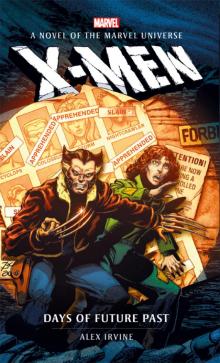 Marvel Novels--X-Men
Marvel Novels--X-Men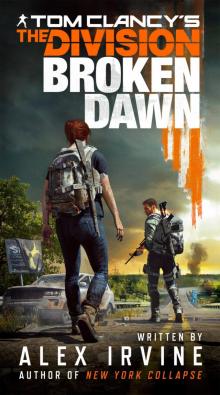 Tom Clancy's the Division
Tom Clancy's the Division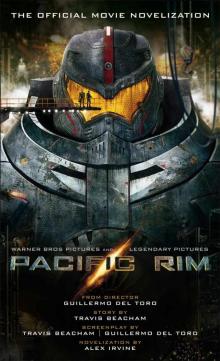 Pacific Rim: The Official Movie Novelization
Pacific Rim: The Official Movie Novelization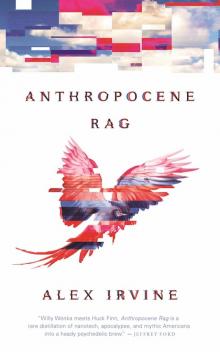 Anthropocene Rag
Anthropocene Rag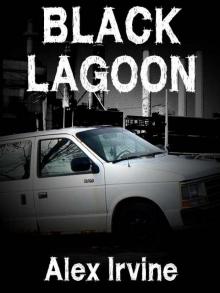 Black Lagoon
Black Lagoon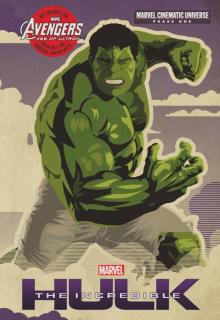 Phase One: The Incredible Hulk
Phase One: The Incredible Hulk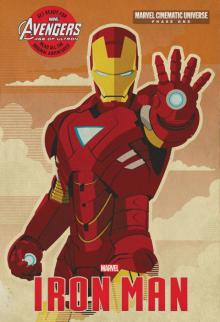 Phase One: Iron Man
Phase One: Iron Man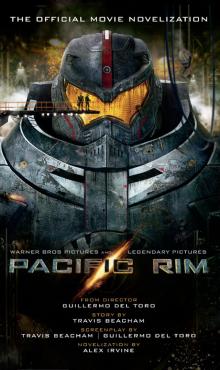 Pacific Rim
Pacific Rim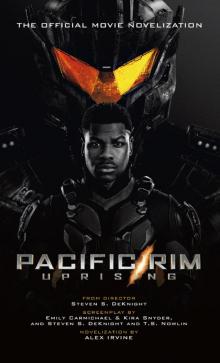 Pacific Rim Uprising--Official Movie Novelization
Pacific Rim Uprising--Official Movie Novelization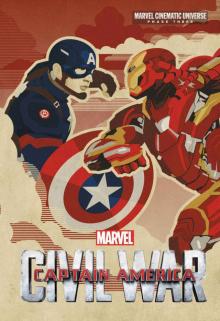 Phase Three: Marvel's Captain America: Civil War
Phase Three: Marvel's Captain America: Civil War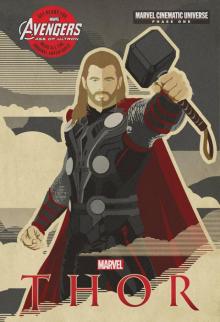 Phase One: Thor
Phase One: Thor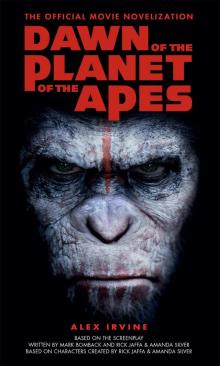 Dawn of the Planet of the Apes: The Official Movie Novelization
Dawn of the Planet of the Apes: The Official Movie Novelization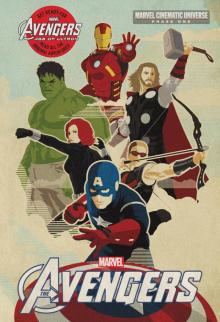 Phase One: Marvel's The Avengers
Phase One: Marvel's The Avengers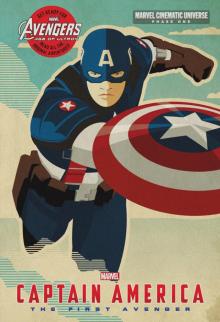 Phase One: Captain America
Phase One: Captain America Exiles
Exiles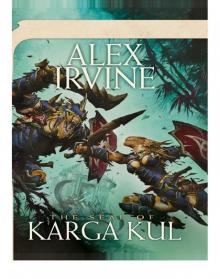 The Seal of Karga Kul: A Dungeons & Dragons Novel
The Seal of Karga Kul: A Dungeons & Dragons Novel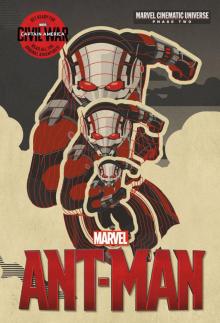 Marvel's Ant-Man - Phase Two
Marvel's Ant-Man - Phase Two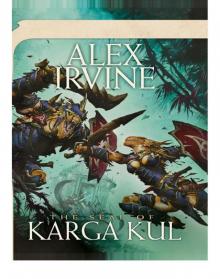 The seal of Karga Kul (dungeons and dragons)
The seal of Karga Kul (dungeons and dragons)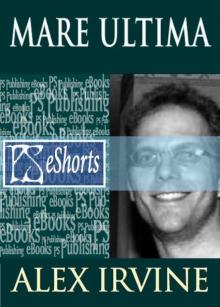 Mare Ultima
Mare Ultima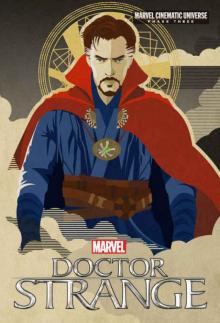 Phase Three: MARVEL's Doctor Strange
Phase Three: MARVEL's Doctor Strange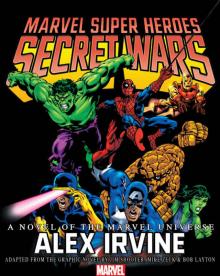 MARVEL SUPER HEROES SECRET WARS
MARVEL SUPER HEROES SECRET WARS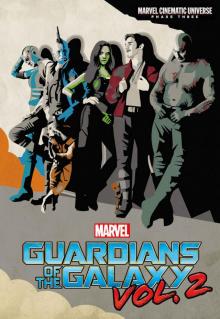 Phase Three: MARVEL's Guardians of the Galaxy Vol. 2
Phase Three: MARVEL's Guardians of the Galaxy Vol. 2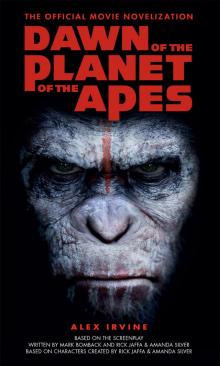 Dawn of the Planet of the Apes
Dawn of the Planet of the Apes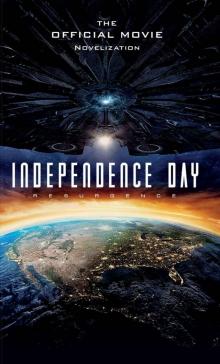 Independence Day: Resurgence: The Official Movie Novelization
Independence Day: Resurgence: The Official Movie Novelization